This article will review the four largest advantages businesses discover by integrating their CRM with automated marketing.
Benefit #1: Improved Efficiency in Handling Customers
Confused customers often come at a great cost: lost sales, reduced business, and diminished customer interest.Fortunately, one of the most commonly cited advantages of combining CRM with marketing automation is a reduction in confusion and an increase in clarity. This clarity derives from the marketer’s newfound ability to deliver a precise and consistent message—one that also benefits from extra time gained from automation efficiencies, which allows teams to spend more time on establishing relationships.

Slow customer service response times are another element that can result in a company losing customers. A study conducted in 2012 by Edison Research revealed that one in four consumers who contact a brand on social media to express a complaint prefer a response within an hour or less. Additionally, 42 percent of customers expect a response by a company to their message within one hour or less.
Given these expectations, it is critical that companies respond to messages as quickly as possible. Fortunately, the integration of CRM with marketing automation systems allows companies to respond faster, increasing the quality of positive brand interactions.
Benefit #2: Better Leads for Sales Teams
Not all sales leads are the same.Many companies, however, make the mistake of confusing an increase in sales with a similar increase in quality sales leads. In actuality, studies often reveal that quality leads often only comprise a small portion of all leads. In an average of 61 percent of B2B marketers who send leads to sales teams, only 27 percent of these leads qualified for a direct sales call.
The danger of using lower quality sales leads? Companies risk spending precious sifting through low-quality leads.
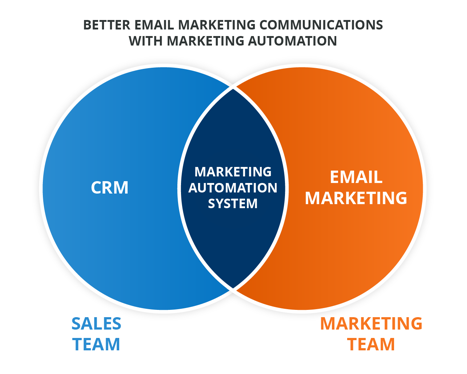
To avoid this waste, businesses should instead determine a firm-but-flexible construction of what constitutes a quality lead. Companies today distinguish leads in a variety of ways. Many
Marketing automation that is integrated with CRM, however, improves lead quality by more easily and accurately defining which leads are most valuable. Using the data collected from marketing automation tools, companies can evaluate and grade leads to make sure that only the most promising are passed onto sales teams.
Benefit #3: Companies Can Focus More on What Works
Companies that are unable to make precise analyses of their businesses performance face an uphill battle in growing their company. After all, low confidence in obscure analytics makes it unclear as to what’s working, and what needs additional growth.CRM integrated marketing automation allows companies to better measure marketing successes and failures. Subsequently, companies are able to increase focus on growing the successful parts of their business.
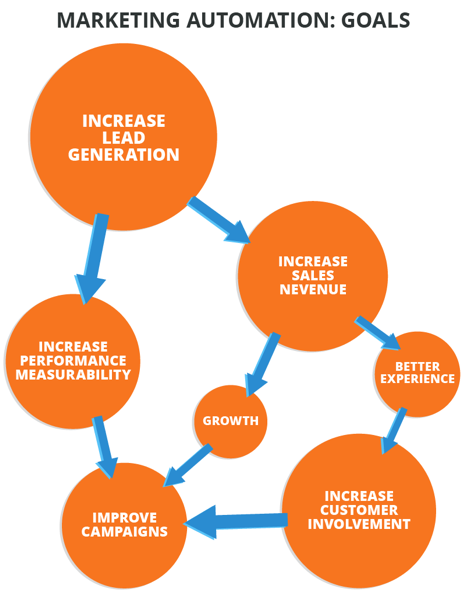
The integration of CRM and marketing automation systems allow companies to better identify the strongest departments and employees within their company.
More accurate and available data makes it easier for businesses to identify the successes and reward departments and even particular employees for their efforts towards these advancements.
In addition to being able to better determine what employees and departments have helped to grow a company, companies are better able to determine which marketing campaigns were most successful. Campaign ROI reporting, in particular, is much easier when CRM is integrated with marketing automation due to better communication between customer data reporting and campaign creation.
HubSpot is just one of the services that allow companies to monitor these details in such a manner. Companies who use Hubspot are able to operate inbound marketing campaigns—including real-time sales alerts, lead scoring, and tracked marketing files—and monitor all of the financial details involved.
And beyond the campaign level, integration revenue will always be attributed to the proper campaign and team who obtained these results.
Benefit #4: More Information Can Be Gathered On Customers
Modern marketing and sales departments focus on collecting as much information about consumers and their purchasing patterns as possible. This data is invaluable because it lets companies determine the best way to reach and convert prospects into customers.The greater the volume of customer data that companies can effectively process, the more targeted and strategic they can be in communications.
Tools that are offered by marketing automation allow companies to capture even more data related to potential customers. This data includes:
- Volume of downloads
- Time spent on any given page
- How online visitors reach your site
- Which pages are most often visited
- Time of day site is most often visited
By integrating this information with a CRM program, companies can provide a sales team with an even better understanding of how to relate to customers. This improved understanding is helpful because Pardot’s 2013 State of Demand Generation research reveals that 77 percent of consumers want different content targeted to them at each stage of the sales process. Because marketing automation systems provide companies with a better understanding of exactly what customers want, these systems serve as a sort of threshold between CRM and email marketing.
Marketing automation systems provide CRM with invaluable data. Companies can then use CRM to analyze this data and determine how to best use it to improve a business in a handful of ways including through email marketing. The advantage of this improved email marketing is that companies are able to create strong relationships with customers because interactions are more personal. Due to these stronger relationships, there is a greater likelihood of the company obtaining a closed sale, which means increased revenue.
To Reach Your Business Potential, Integration is Critical
The integration of CRM and marketing automation systems makes positive ripple effects through all elements of a company. Integration improves how a company markets its products and interacts with the customer, which results in increased sales. Increased sales, of course, result in growth and an increased capacity to provide customers with more rewarding interactions. 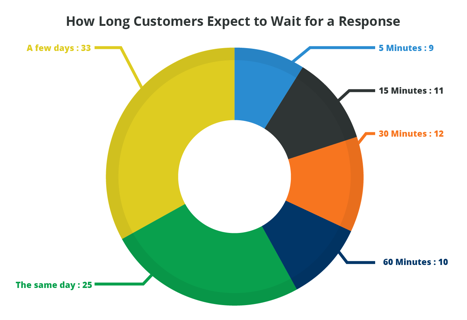
Many companies also discover that in addition to time gains from efficiency, automated systems also help prevent small errors from occurring in CRM systems, which can cause sales leads to become lost and result in a reduction of the size of a company’s sales base.
These are just some of the benefits that individuals obtain through automated marketing and CRM. By integrating the programs, many companies discover a personalized touch that grows all aspects of their business.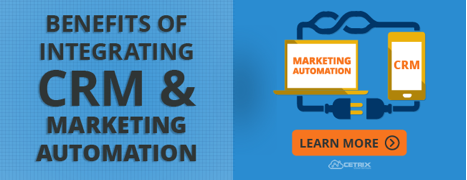

.jpg)
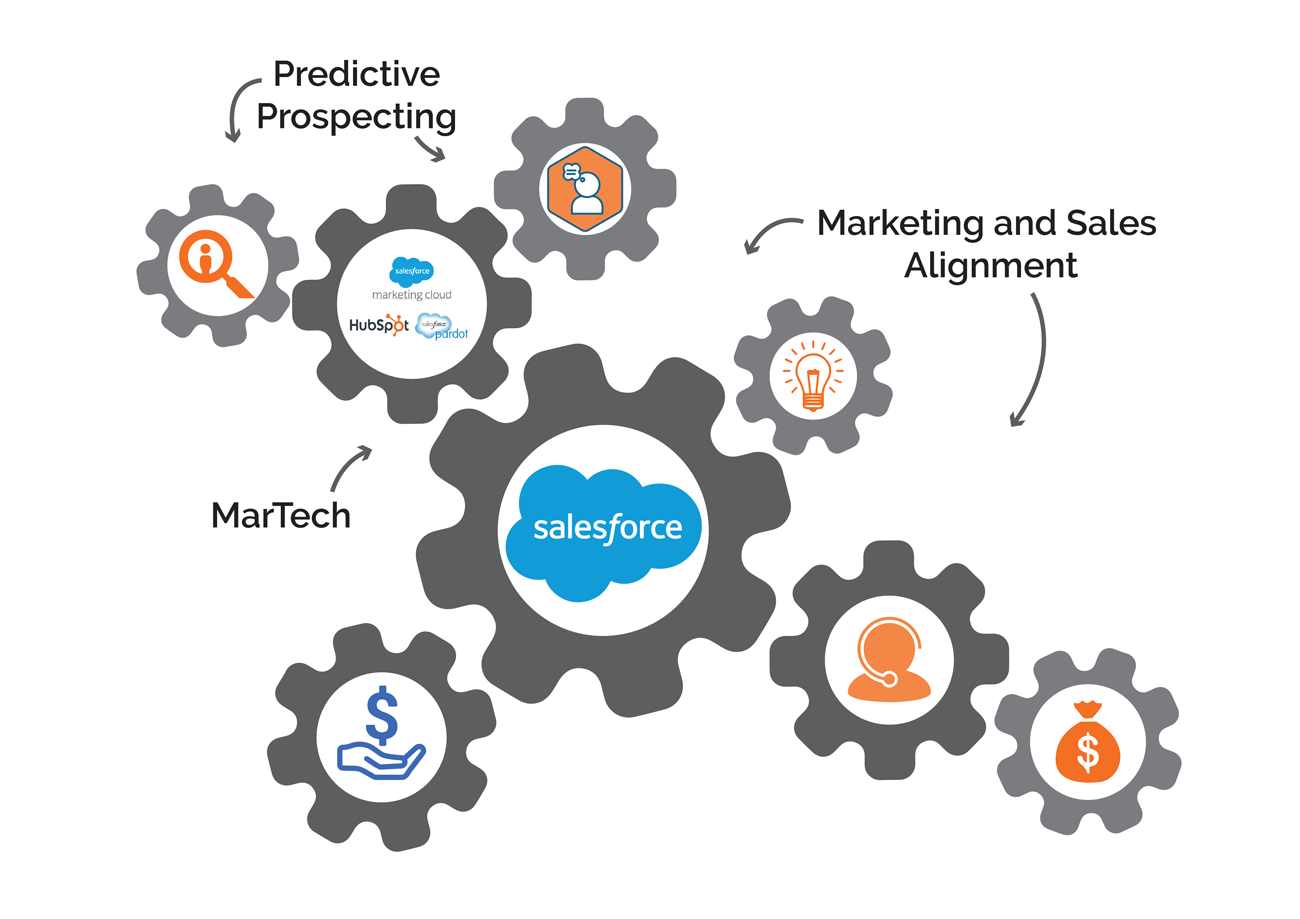



Leave a Comment